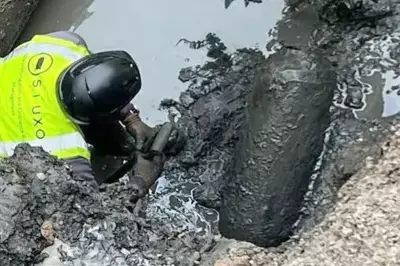
Sir Keir Starmer is facing mounting pressure from within his own party to explicitly recognise Israel's right to defend itself militarily, as deep divisions emerge over Labour's stance on the Middle East conflict.
Stephen Kinnock, the Shadow Immigration Minister, has become the latest senior Labour figure to publicly challenge the party leadership's position. In a significant intervention, Kinnock declared that Israel's ongoing military operations represent a "legitimate response" to the October 7th Hamas attacks that killed approximately 1,200 Israelis.
Growing Party Rift
The Labour leader finds himself caught between competing factions within his party. While frontbenchers like Kinnock advocate for stronger support of Israel's security concerns, dozens of Labour MPs have signed motions calling for an immediate ceasefire in Gaza.
This internal conflict reflects the broader tensions Starmer must navigate as he attempts to maintain party unity while positioning Labour as a government-in-waiting.
Kinnock's Strong Stance
In his recent comments, Kinnock didn't mince words: "We have to be absolutely clear that Israel does have the right to self-defence and the military action we have seen is a legitimate response to the massacre that took place on October 7."
The shadow minister emphasised that while humanitarian concerns remain critical, the context of Hamas's ongoing threat cannot be ignored in assessing Israel's military strategy.
Humanitarian Concerns vs Security Imperatives
The political tightrope Starmer must walk was evident in Kinnock's carefully balanced remarks. While supporting Israel's defensive actions, he also acknowledged the "desperate" humanitarian situation in Gaza and called for increased aid access.
This nuanced approach attempts to bridge the gap between Labour's pro-Israel and pro-Palestinian factions, but risks satisfying neither side completely.
Leadership Test for Starmer
The ongoing debate represents a crucial test of Starmer's authority and his ability to manage the diverse viewpoints within his party. With the Labour frontbench showing increasing willingness to speak independently on foreign policy, the leadership faces challenges in maintaining a coherent party line.
As the conflict continues, pressure is likely to intensify on Starmer to clarify Labour's position and address the concerns of MPs across the party's political spectrum.





